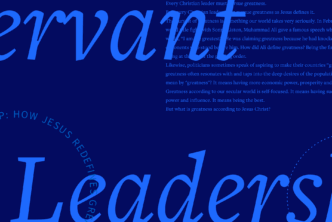The High Definition Commentary on James has just been released.
Here’s what I like about the idea of the High Definition Commentary, which focuses on the field of “Discourse Grammar”: this field (and this commentary) does for a somewhat unfamiliar set of grammatical features what we need our grammatical labels to do. It helps us really see things we only intuited before.
You have always known what nouns and verbs are, because you have never really mixed them up after age four (?), except perhaps on purpose. Ever since you were a little kid, you said, “That’s a very big ___________,” and you never stuck a verb in the blank (“That’s a very big jumping”). You said, “I saw Johnny _________ into the street,” and you never stuck a noun in the blank (“I saw Johnny truth into the street”).
But being taught the labels “noun” and “verb” that fateful day in second grade gave you clarity on what you already intuited, making it much easier to parse the meaning of your own sentences—or those of others you were reading or listening to. This parsing serves your own understanding, and it gives you a greater capacity to explain sentences to others.
This is what the High Definition Commentary (HDC) does, but not with “nouns” and “verbs.” You already have those down. The HDC does this with Discourse Grammar. As with nouns and verbs, you have been intuiting (English) discourse markers your whole life. But if you didn’t have labels for them, you didn’t notice them in quite the same way, or to quite the same degree.
Take, for example, this first paragraph from the HDC volume on James 2:1–13 (releasing tomorrow, remember). I have accentuated every insight which is based on Discourse Grammar.
James signals the shift to a new topic through the use of redundant address (“my brothers”) and an exhortation not to hold our faith with partiality. What does this mean on a practical level? James uses a very complex set of “if” conditions that stretches all the way through the end of verse 4 to make one important “then” statement. These conditions evoke a vivid scenario that he uses to critique the entirety of the situation. He accomplishes the same task as that we do when we say, “Let’s suppose that someone enters your assembly in fine clothing, and you look favorably on the one…” The conditions do not mean that this exact scenario must occur before we make a favorable distinction; it is simply a common strategy in Greek for signaling a hypothetical situation.
You can see this “complex set of ‘if’ conditions” without the insights of Discourse Grammar. But, as with nouns and verbs and prepositions and genitive uses and all the other labels we’ve agreed upon for parsing our speech and writing, you see more clearly when you have the label.
Try it:
My brothers, show no partiality as you hold the faith in our Lord Jesus Christ, the Lord of glory. For if a man wearing a gold ring and fine clothing comes into your assembly, and a poor man in shabby clothing also comes in, and if you pay attention to the one who wears the fine clothing and say, “You sit here in a good place,” while you say to the poor man, “You stand over there,” or, “Sit down at my feet,” have you not then made distinctions among yourselves and become judges with evil thoughts? (James 2:1–4 ESV)
Author Steve Runge (Faithlife Scholar in Residence) is doing what scholars serving the Christian church are supposed to do: he is popularizing the insights of some rather difficult academic research into how we “mean” with sentences.
The commentary also includes helpful illustrations you can use in teaching or preaching.
The HDC volume on James is also being put out in paper form by Lexham Press. Pick it up today if you want the insights of Discourse Grammar in your study of James.






